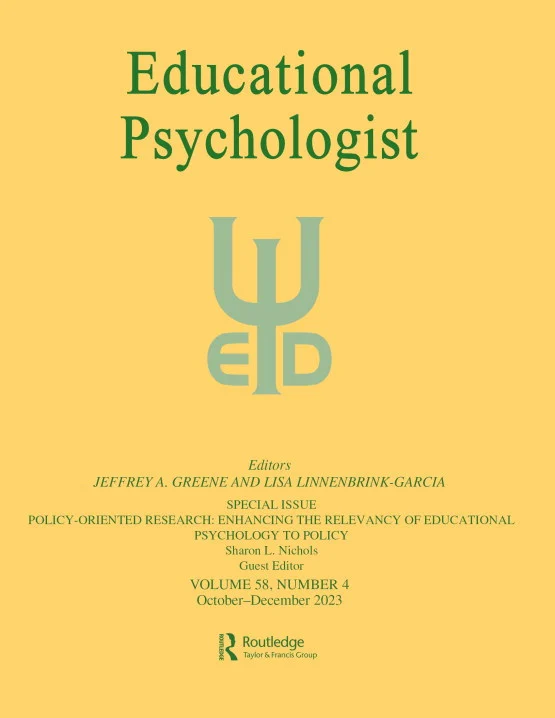用质性探究解析复杂现象:以教师身份研究为例
IF 11.4
1区 心理学
Q1 EDUCATION & EDUCATIONAL RESEARCH
引用次数: 20
摘要
尽管定性探究在加深对不同背景下人们生活经历的理解方面做出了重要贡献,但教育心理学领域尚未充分参与理解、推进和倡导定性探究。在本文中,我们揭示了在教师身份研究的背景下进行定性研究的过程、启示和挑战。我们讨论了我们的建构主义认识论假设,我们提出的研究问题类型,以及相关的方法论选择,包括纵向定性研究和案例研究。具体的方法来产生厚的描述,包括有目的的抽样,各种形式的数据,归纳分析程序。还讨论了与定性研究的可信度相关的问题和挑战,以及我们应对这些问题的方法。本文阐述了如何以及为什么采用定性调查有利于解开复杂的现象,如教师身份,并有助于推进教育心理学领域的方法多样性。本文章由计算机程序翻译,如有差异,请以英文原文为准。
Unpacking complex phenomena through qualitative inquiry: The case of teacher identity research
Abstract Despite the key contributions of qualitative inquiry in developing deeper understandings of people’s lived experiences within varied contexts, the field of educational psychology has not been fully engaged in understanding, advancing, and advocating qualitative inquiry. In this article, we unpacked the processes, affordances, and challenges in conducting qualitative studies in the context of researching teacher identity. We discussed our constructionism epistemological assumptions, the kind of research questions we were proposing, and related methodological choices including longitudinal qualitative research and case study. Concrete methods to generate thick descriptions were addressed including purposeful sampling, various forms of data, and inductive analysis procedures. Questions and challenges related to trustworthiness of qualitative research and our approaches to attending to them were also discussed. This article illustrates how and why employing qualitative inquiry is beneficial for unpacking complex phenomena such as teacher identity, and contributes to advancing methodological diversity within the field of educational psychology.
求助全文
通过发布文献求助,成功后即可免费获取论文全文。
去求助
来源期刊

Educational Psychologist
Multiple-
CiteScore
19.10
自引率
3.40%
发文量
16
期刊介绍:
The Educational Psychologist is a scholarly journal dedicated to exploring the psychology of learning and instruction. Articles in this journal encompass a diverse range of perspectives, from examining psychological mechanisms to exploring social and societal phenomena related to learning and instruction. The journal publishes theoretical and conceptual articles, as well as reviews and meta-analyses, that significantly contribute to theory or advance the methods used to explore educational psychology. Emphasizing innovation and advancing understanding, the journal does not publish articles solely reporting the methods and results of empirical studies; instead, all submissions, including reviews and meta-analyses, must offer clear implications for advancing theory. In addition to regular articles, the journal features special issues that delve into important themes in educational psychology, along with focal articles accompanied by peer commentary.
 求助内容:
求助内容: 应助结果提醒方式:
应助结果提醒方式:


